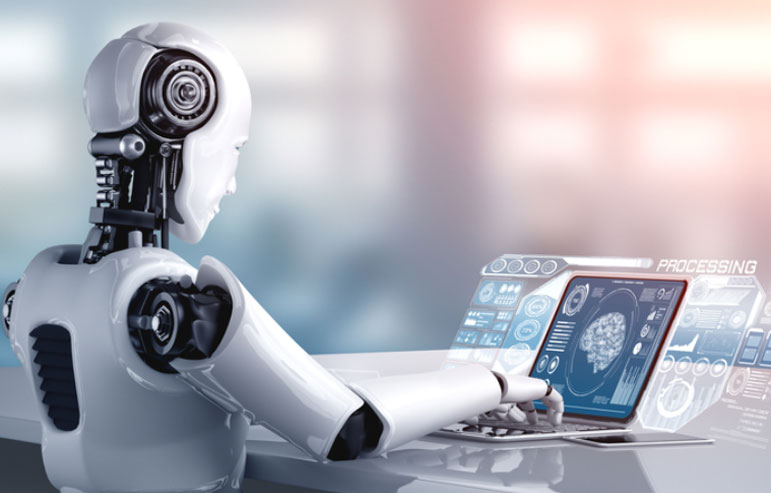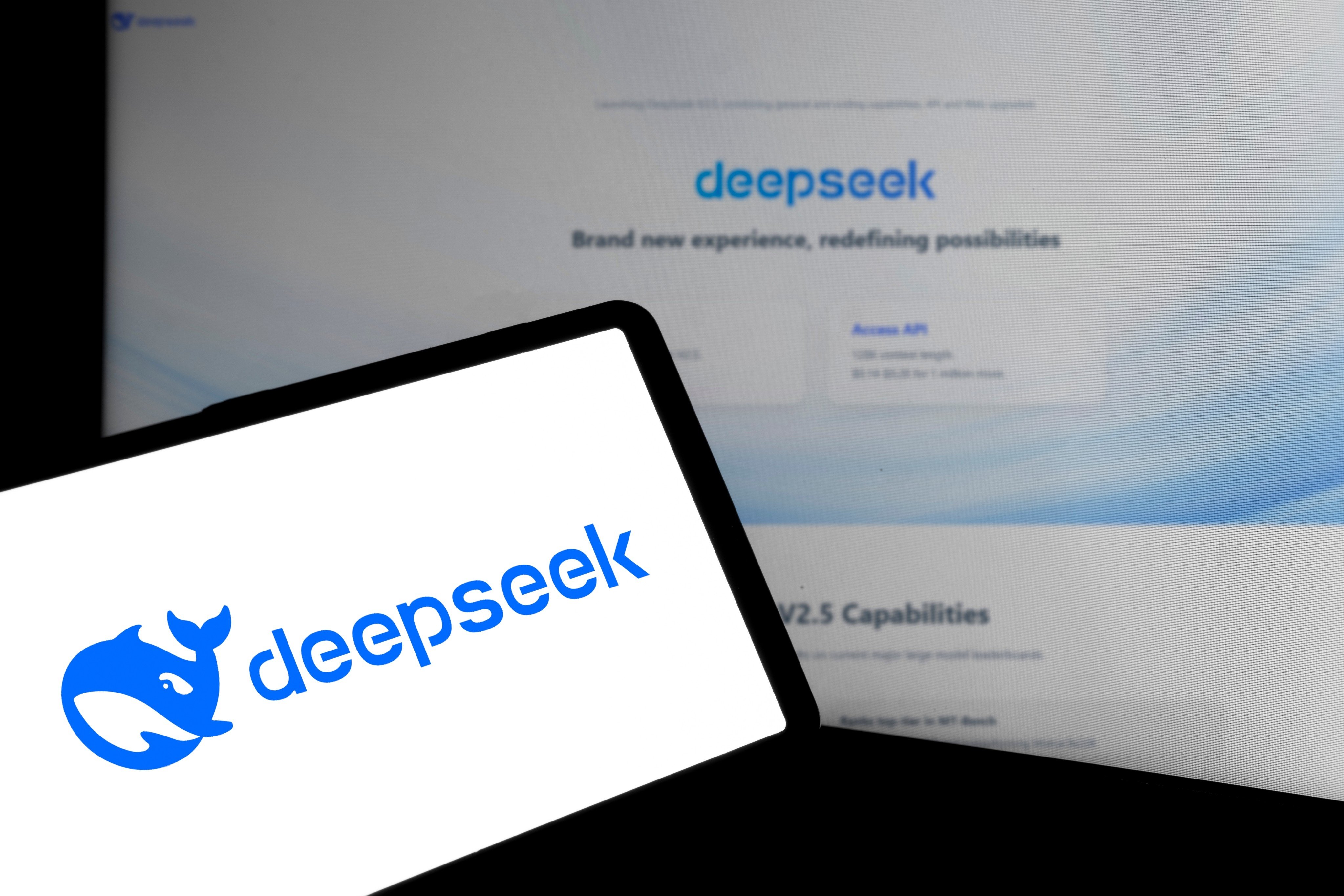
We may generate income when you click links to our partners. Learn More.

What is synthetic general intelligence (AGI), and why does it matter? As one of the most talked-about topics in technology today, it has sparked a race among top companies like OpenAI and Google to turn this advanced concept into truth. Understanding AGI is essential because it has the prospective to revamp markets, impact our society in extensive methods, and alter the method we communicate with innovation. Here's what you require to understand about what it may be able to do, how it might change markets and fields, and the considerable obstacles facing its advancement.

KEY TAKEAWAYS
• AGI varies from traditional AI in crucial methods in that it would have the ability to think, discover by itself, and adjust to brand-new obstacles like human beings unlike traditional AI, which is developed for specialized jobs and runs within a minimal scope. It needs people to upgrade and improve capabilities. (Jump to Section).
• Once it ends up being a truth, AGI would have the ability to make exceptional advances in numerous fields, consisting of health care, research study, and financing sectors. (Jump to Section).
• Creating AGI is tough due to the research challenges that consist of technical, ethical, and societal issues. Addressing these challenges is central to keeping the safe and favorable advancement of this technology. (Jump to Section)
Featured Partners: Expert System Software
Learn More
TABULATION
What is Artificial General Intelligence (AGI): A Clear Definition.
Understanding AGI vs Traditional AI.
Potential Applications of Artificial General Intelligence.
Challenges in Artificial General Intelligence Research.
3 Introductory AGI Courses to Consider.
Frequently Asked Questions (FAQs).
Bottom Line: Why Knowing What Is Artificial General Intelligence Matters.
What is Artificial General Intelligence (AGI): A Clear Definition
Artificial basic intelligence, or AGI, refers to a kind of artificial intelligence (AI) that can interpret, discover, and carry out any cognitive job that a human can do. Unlike today's AI, which is built to handle specific jobs like suggesting items or processing data, AGI would have the ability to adjust to new challenges and use understanding across different fields. In other words, this sophisticated kind of AI would believe and reason like a human. While AGI holds terrific possible, it's worth noting that it is still a concept today, with no fully developed systems offered yet.
Key Capabilities of Artificial General Intelligence
AGI would have a series of abilities that imitate human intellectual functions, so it can carry out tasks beyond the narrow focus of the current AI tools in the market. Some crucial capabilities consist of the following:
Human-Like Reasoning: The innovation would have the ability to understand and make choices the method human beings do. It would believe critically, fix problems, and create solutions based on its own experiences and previous interactions, similar to how we use past understanding to brand-new circumstances.
Solving Unfamiliar Problems: One of AGI's strengths is its potential to tackle new issues. Unlike standard AI, which is trained to perform particular jobs, AGI would have the capacity to manage problems it hasn't been straight trained to solve. It might determine how to approach a totally new challenge, simply like humans do when faced with something we have actually never ever experienced before.
Self-Learning and Adapting: AGI could tweak its skills and gain from experience, without the requirement to be manually upgraded every time. It would observe and evaluate information, find out from mistakes, and find better methods to finish tasks in time. This means AGI could adapt to new scenarios and get better at tasks on its own.
Using Knowledge Across Different Areas: AGI would be able to take what it discovers in one location and apply it to other tasks. For instance, if it found out how to resolve mathematics problems, it might utilize that knowledge to address difficulties in other fields, like science or business. The ability to move abilities throughout various areas is something humans do naturally and would make the innovation flexible in varied sectors.
Understanding and Reacting To Emotions: Recognizing and responding to human emotions would likewise be within AGI's capabilities. This would be important in settings where understanding individuals's feelings matters, such as healthcare, customer care, or social circumstances. By responding to emotions properly, AGI would be much better geared up to work with human beings in a reliable method.
Understanding AGI vs Traditional AI
The table below provides a snapshot of the major differences in between AI and standard or narrow AI by underscoring their capabilities, flexibility, and current status.
AGI would have the capability to believe, learn autonomously, and adjust to new difficulties like people. However, it is still theoretical and has not been understood yet. On the other hand, standard AI is constructed for specific tasks and operates within a repaired scope. It can not adapt to brand-new jobs without human input.

For instance, an AGI might learn to identify medical conditions, then use that knowledge to establish customized treatment plans-and even adjust its approach based on the patient's progress. Additionally, it might use this analytical ability to jobs in totally different fields, such as developing business strategies or encouraging on ecological conservation. On the other hand, conventional AI, like a diagnostic tool, can just examine medical information for particular conditions. It can not adapt to other areas or improve on its own.
Potential Applications of Artificial General Intelligence
While AGI isn't here yet, its potential applications cover numerous fields and hold terrific guarantee of drastic advancements in lots of sectors. Without being restricted to particular jobs like narrow AI, AGI would be highly flexible and could apply its abilities to resolve multi-disciplinary issues. It could overcome difficulties currently beyond the abilities of existing AI applications.
Transforming Healthcare
AGI would alter the video game in health care by detecting complex and unusual illness with higher accuracy, even in cases where signs are ambiguous or overlap with multiple conditions. It could develop highly personalized treatment strategies by studying patient history, genetic info, and real-time health information. In addition, AGI could speed up drug discovery, identifying possible treatments in weeks instead of years by processing enormous datasets and koha-community.cz running predictive simulations.
Advancing Scientific Research
In clinical research, AGI would be able to simulate experiments, examine intricate datasets, and generate hypotheses. It might accelerate breakthroughs in quantum physics, genomics, and environment science. By incorporating knowledge from different domains, the technology might discover connections and solutions that may otherwise go undetected by standard AI.
Improving Industry
Organizations in the industrial field could utilize AGI to enhance performance in real-time by handling whole supply chains. It would predict and solve disturbances before they happen. In manufacturing, it could oversee self-governing factories, optimizing production procedures while keeping safety and quality standards. Its capability to get used to changing situations would make it an invaluable tool in industrial environments.
Enhancing Business Strategy
AGI might improve business decision-making by assessing market trends, customer behavior, and operational data to discover opportunities and risks. In contrast to narrow AI systems, AGI would innovate options to difficult business issues, such as dealing with financial uncertainty or forecasting long-term market shifts. Its capability to discover from diverse sources would empower companies to remain competitive.
Redefining Finance
In the financial sector, AGI could increase forecasting accuracy by spotting patterns in large quantities of monetary data, so financiers and institutions can make informed choices. It would also be able to identify scams in real-time by recognizing subtle anomalies that traditional AI systems may miss out on. Additionally, AGI might construct more robust monetary designs, factoring in complex variables and scenarios to alleviate threats.
Challenges in Artificial General Intelligence Research
Developing AGI is among the most ambitious goals in technology, however it features numerous difficulties. These obstacles consist of technical, ethical, and societal areas, making AGI advancement a complex and multi-faceted procedure. Overcoming the following challenges amounts making sure safety, promoting ethical requirements, and thoroughly preparing how AGI's intro and usage will impact people, industries, and society as a whole:
Making AGI Truly Flexible: AGI would need to manage a vast array of problems and adapt to new scenarios, just like human beings. Building a system of versatility is exceptionally difficult since existing AI tools are not created to think or learn at this level of elegance.
Massive Computing Needs: To reproduce human intelligence, AGI would need massive quantities of computing power to process information from varied sources quickly. Finding out how to make such systems effective and efficient enough for real-world usage is a substantial difficulty.
Understanding Human Intelligence: We don't fully comprehend how human believing works, especially complicated elements like intuition or consciousness. Without this understanding, it's challenging to construct machines that can imitate human-like thinking.
Making AGI Safe and Ethical: AGI might possibly be misused, like to create prejudiced systems or damaging tools like self-governing weapons. Researchers should make sure that AG is constructed responsibly and follows rigorous ethical standards. This is a difficult job that necessitates international partnership.
Keeping It Under Control: There's a threat AGI might act in ways we do not expect, particularly considering that it would have the capability to learn and alter with time. Ensuring that these systems stay lined up with human worths and are safe to utilize is among the most significant obstacles in AGI research study.
Effect on Jobs and Society: If AGI comes true, it could replace jobs or trigger economic inequality by benefitting some groups more than others. Getting ready for these social effects is just as important as constructing the technology itself.
High Costs and Resources: Researching AGI necessitates a great deal of cash, time, and professional understanding. Not all companies have these resources, decreasing progress and leaving smaller organizations out of the race.
3 Introductory AGI Courses to Consider
Familiarizing yourself with AGI can give you a competitive edge, whether you wish to advance your career in AI or just desire to stay notified about emerging innovations. The following initial courses can assist you acquire a deeper understanding of what artificial general intelligence is, so you can strengthen your knowledge about this promising AI development.
Artificial General Intelligence (AGI): An Initial Course on Udemy
This Udemy course offers an essential understanding of AGI, suitable for beginners without any prior experience. The course covers appropriate subjects, consisting of the structures of AI, the fundamentals of AGI, and the current patterns in the field. It likewise checks out the advantages, risks, and challenges associated with AGI, equipping you with insights into what the innovative innovation can achieve. The whole course consists of 15 lectures and can be completed in roughly 45 minutes. Upon completion, you will receive a certificate to boost your qualifications in the task market. This introductory course expenses $24.99.
Intro to Artificial General Intelligence (AGI): Future of AI on Udemy
Udemy's introductory course uses an extensive introduction of AGI for students with no technical background. It talks about the historical context and structure of AGI, the distinctions between narrow AI and AGI, and ethical factors to consider surrounding its development. In addition, it resolves future patterns in AI and AGI, clarifying the obstacles and opportunities that lie ahead. Spanning one hour and 46 minutes, grandtribunal.org the course consists of 39 lectures, on-demand video, and downloadable resources. It also has a dry run at the end to enhance your understanding. You will be granted a certificate as soon as you complete the course. It is available as part of Udemy's premium plans, beginning at $20 monthly, or as a different purchase of $49.99.
Artificial General Intelligence (AGI) on Udemy
This Udemy course brings a clear and concise intro to the subject, with on-demand videos and 22 lectures. It elaborates on major AGI ideas and the role of robotics in AGI development. It likewise analyzes the ethical, software, and hardware difficulties in creating AGI. The course offers quizzes to check your understanding and a certificate of conclusion. Priced at $44.99, it is made for learners at any level, making it available and important for anybody who wants to discover more about AGI.
Frequently Asked Questions (FAQs)
Achieving AGI might change markets, enhance decision-making, and lead to substantial improvements in innovation. However, it likewise raises issues about ethics, task displacement, and the requirement for correct guideline to make sure it is established securely and properly.

Experts disagree on how far we are from accomplishing AGI. Sam Altlman of OpenAI believes in 2025, AI representatives might sign up with the workforce, ultimately paving the method to AGI development. On the other hand, a study of AI researchers puts the average quote around 2047. Despite rapid AI improvements, existing systems are still limited to narrow jobs and lack the broad, flexible reasoning of humans-so AGI is most likely still years away.
The idea of AGI totally replacing human beings is still disputed. Even though it's most likely that AGI will assist us by taking control of repeated jobs, there is a possibility that it could displace particular tasks. That stated, rather than totally replacing human beings, AGI is expected to work along with us, dealing with technical duties while we concentrate on tasks that need imagination and empathy. At the end of the day, the effects of AGI will depend on how society picks to manage and integrate it.
Bottom Line: Why Knowing What Is Artificial General Intelligence Matters
Understanding synthetic basic intelligence is important because this innovation might change industries, resolve tough issues, and change how we utilize AI. But as we start to establish AGI, we need to thoroughly resolve several challenges, including technical issues, ethical concerns, and its general effect on society. By discovering AGI's potential and dangers, we can work towards making sure it is created properly and used in manner ins which would benefit everyone.








